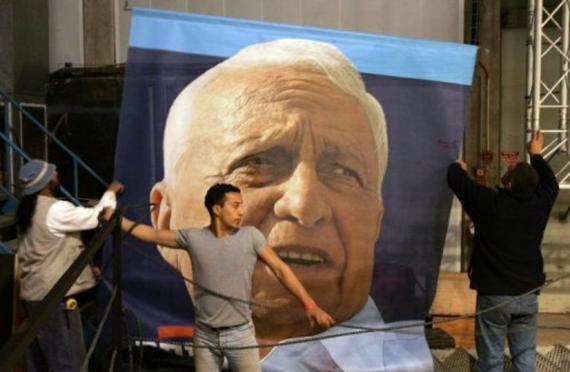A live dialogue regarding the Call for a Moratorium will take place on 13th April from 10 pm to 11.15 pm (GMT + 2).
You will have the opportunity to ask your questions regarding this theme on April 13 starting from 10:00 am (GMT + 2)
To ask your questions on the topic, pre-registration is required.

![The heat – Arab Spring 5 years on [08/02/2016]](https://tariqramadan.com/english/wp-content/uploads/sites/9/2016/02/the-heat-arab-spring-5-years-on.jpg)







Salam Aliekum. Brother
This is subject is very importen to discuss these things. The injustice and the bad culture that are going against women & poor people and that creates distortion on Islam . Yes your discussion about this matter is going towards direction the step to what a real Islam is. The Sharia must be justified in the core what it is in Quran & Sunnah and use it wise. But never will it be inflicted with bad culture in society and that in witch it allso triggers injustice.
My question is how should we reach to wider public so that they know that these bad culture have to be stoped because it is going against what is Islam stand for. ..
…We are living in a modern Jayhiliah..
dear mr Ramadan,
i totally agree with the call for moratorium,but do you think there will be a time when the hudud can be implemented in a just way?
May Allah reward you for your bold call and we hope that the scholars show similar courage by engaging in this debate. I have two main questions:
1)I read the Islamonline article that quoted leaders and scholars who think this call is a mistake and who question your motives for doing it. I would have liked to read opposing views who might see the point of your call. What kind of reactions are you getting from scholars and ordinary people? Are there scholars who agree with you on this?
2)Since it is the scholars who have to discuss this issue and only they have the authority to call for suspension, what can we ordinary people do?
Jazak Allah khair br. Tariq for taking the time to respond to us, we pray for you and your family.
Salam Alaykoum Tariq,
I have already asked you the question on the french version of this dialog but I was not satisfied with your answer. Considering the tight links of all aspects of life in Islam (faith, social, politics,…). Would it be usuful to address other muslim decision makers and not only the Ulema’s. Otherwise I’m afraid that the call will find no convergence by the Ulema’s. They have showed heavy divergence in the past. The other question I have is related to some statisitcs. Your call will be well supported by providing a snapshot of the situation by means of figures so we understand the severity of the situation. Figures and their trends are important and we see them only from Amnesty International (at least some figures). So if you want a debate from the “inside” then we need also to assess the situation from “inside”. Please also indicate the source of the figures you have so far.
Thank you
Samir
Salam Alaykoum,
Salam Alaykoum Tariq,
I have pasted two statements that you probably have heard about. Can you please lay out your arguments ? (for full article http://www.islamicawakening.com/viewnews.php?newsID=4208)
“Some may start calling for moratorium on the family law of Islam also, and some others on the business and finance laws of Islam, and some may ask for moratorium on the whole Shari`ah”
I do have a great respect and love for Dr. Tariq. [But] If we call today for an international moratorium on corporal punishment, stoning and the death penalty, then tomorrow I am so worried that they may ask Muslims to suspend their Friday Prayer,
These statements are coming from Ulema’s. I’m very disappointed about the methodology they chose to debate. I hope you’ll raise the debate at a serious level. Would you say that violence in the name of Allah requires an urgent and specific processing?
Thanks
Salam Alaykoum
Samir
Dear Tariq,
Thanks for your efforts to promote ethics and justice in the Islamic world and everywhere. I totally agree with your moratorium because the laws are currently applied in a way which is opposed to their very essence. And Islam is justice, and we, as Muslims cannot tolerate anymore the unjust applications of these laws.
I want to draw your attention to some reactions that followed your call for the moratorium. An example is an article written by Yasser Azza3atira on the Moroccan journal Attajdid: http://www.attajdid.ma/. In this article, Yasser hinted (in one sentence) at the very beginning that you were talking about a moratorium. After that, and throughout the article, he kept saying that you were advocating and asking for removing these laws, not calling for a moratorium. Not only that, at one point, he stated that the analogy you gave between your call and Omar Ibn Al-Khattab moratorium is not correct because Omar only suspended the law in question for a period of time (sic) as if you weren’t actually calling for a moratorium with debates, but for a mere elimination of the laws right now. This drives me crazy. How can a journalist say this while your call is very clear? Is it lack of professionalism, dishonestly, incompetence? Anyway, I’m afraid your call can be misinterpreted in the Arab and Islamic world and I hope you will find a way to explain again and again (unfortunately) your proposal through Arab medias and especially Arab TV channels.
Thanks
Mounim
Salam Alaykoum Tariq,
I have another question that is very basic, so I apologize if I’m too simple. Please assume that I’m a basic muslim with low amount of education/conceptualisation/…
Here is the question:
Based on Coran, Sourate 24, Verse 1 and 2, what is the path from those verses to the call for a moratorium? I know that most of the Ulema’s will tell me it is too difficult for me but I’m a rebel and I take the opportunity to ask you. Please remain simple especially considering the nature of the first verse of that Sourate.
Again I support your call.
Thank you
Salam Alaykoum
Samir